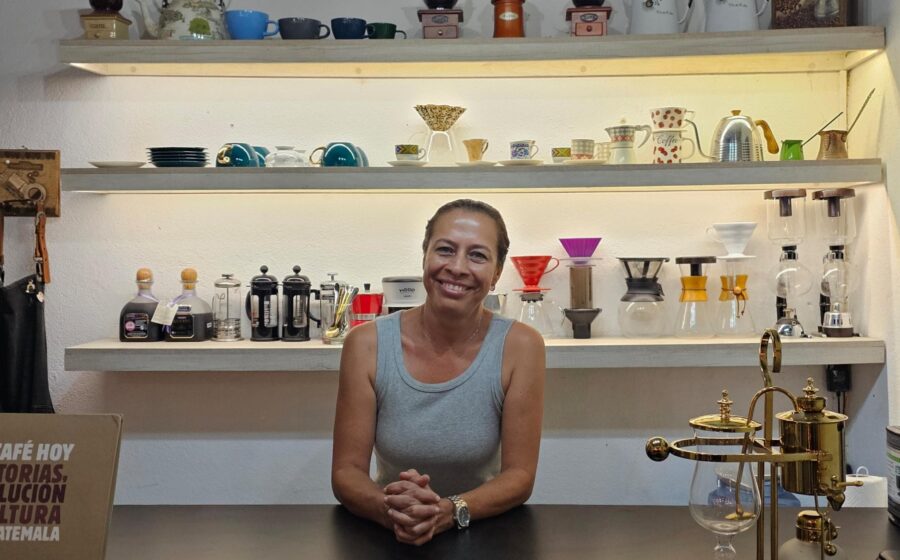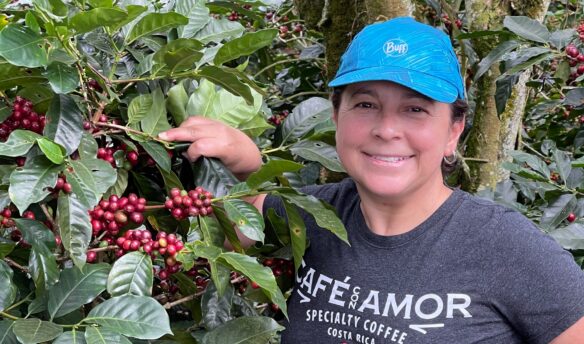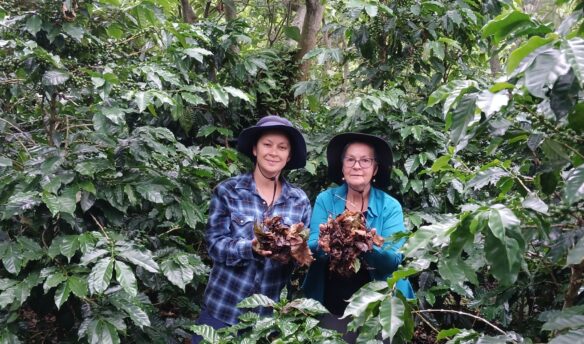Coffee often travels a long way to its final destination. The journey from producing to consuming countries is complex and spans thousands of miles. Coffee usually passes through an intricate network of intermediaries, including exporters, importers, roasters, and distributors, each adding their own markup along the way.
However, some coffee farmers want to make that journey a little shorter—and prioritize their communities—by opening shops and serving coffee grown just a few miles away.
While their focus is hyper-local, their collective impact is felt globally, especially as increasing numbers of specialty coffee businesses open in producing countries. The result is a more direct connection between the people who grow the coffee and the consumers who enjoy it.
All In the Family
Lily Pacas’ coffee journey began decades ago: She’s a fifth-generation farmer and grew up around coffee plants in El Salvador. (Her last name might be familiar to coffee folks: The Pacas coffee varietal is named after her family; they discovered it on their farm in 1949.) In 2007, she decided to open a coffee shop called Viva Espresso (The business is now under new management.
Before opening her shop, Lily traveled to Portland, Oregon, to enhance her barista techniques and coffee-roasting skills. While there, she observed a significant gap between what industry professionals in consuming countries knew and the intricate processes involved in growing and producing exceptional coffee.
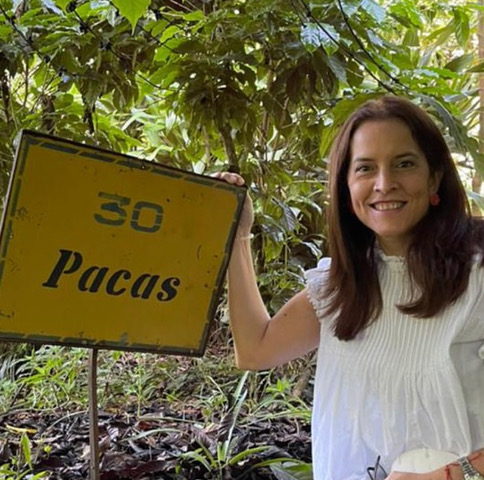
Meanwhile, as a producer, she realized she was unaware of what transpired to her coffee once it left her hands. “I learned about what was happening outside and within the value chain, and I saw that people were disconnected,” she reflects. “I realized there was a need for better communication.”
This insight inspired Pacas to open her own coffee shop, where she could highlight specialty coffee sourced from nearby Salvadorian farms, such as Finca Santa Petrona. Ultimately, her goal was to bridge the gap between producers and consumers, fostering a deeper appreciation for the artistry of coffee.
Today, Pacas takes her role as a steward of the industry seriously. She’s a Q grader and served as the executive director of the Instituto Salvadoreño del Café, El Salvador’s national coffee council. Under Pacas’ tenure, Viva Espresso opened seven more locations across El Salvador. Pacas believes part of its success came from the power of knowledge. “We embrace the idea that if a country produces coffee, we must be experts in our product,” Pacas says.
At Viva, Pacas prioritized barista training for her staff, sending many employees to represent Viva Espresso in international competitions. Viva Espresso has been the home of multiple national barista champions—Pacas herself is the 2008 Salvadorian Barista Champion—and in 2011, Alejandro Mendez, a barista from Viva Espresso, won the World Barista Championship in Bogotá.
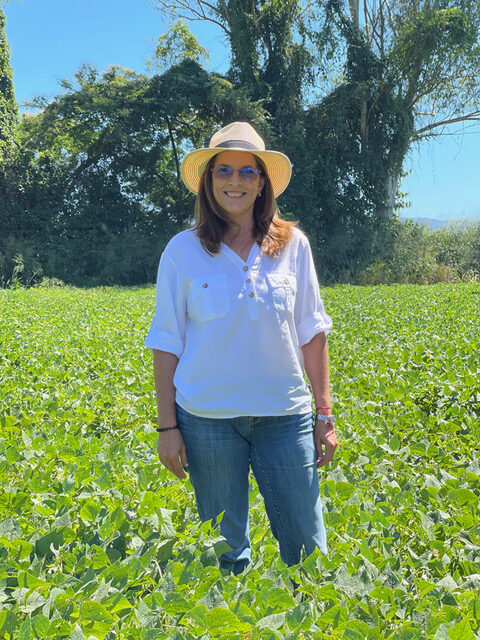
Pacas believes that communication can bridge the gaps in the coffee value chain. “This is the work of creating more local coffee shops; we should all be ambassadors for our coffee locally and internationally,” she says. “By explaining to consumers the types of varieties, brewing techniques, and roasting types, we offer the power of information to a consumer experience.”
Still, Viva Espresso has faced significant challenges, particularly during the COVID-19 pandemic, which led to the closure of many of its stores, some of which have new owners (although Pacas is involved in some of the management).
However, one key lesson Pacas learned as a coffee shop owner is the importance of global communication. She emphasizes that specialty roasters should engage more with coffee producers to understand better the harvesting techniques that directly affect the quality of the final cup. By expanding her perspective, Pacas encourages roasters to do the same.
Celebrating Coffee Culture
While Pacas has been at it for years, Gerardeth Sagastume is new to the coffee retail space. She opened her coffee shop, Garden Coffee, in 2020 in Salamá, Guatemala, aiming to sell coffee directly from her farm, Santa Teresa.
“My experience has been difficult. I started without knowing anything about coffee, and it took me 14 years to learn about cultivation and harvesting,” Sagastume says. “It has been challenging from the beginning—figuring out what to do with that small product, then growing it and figuring out how to promote it.”
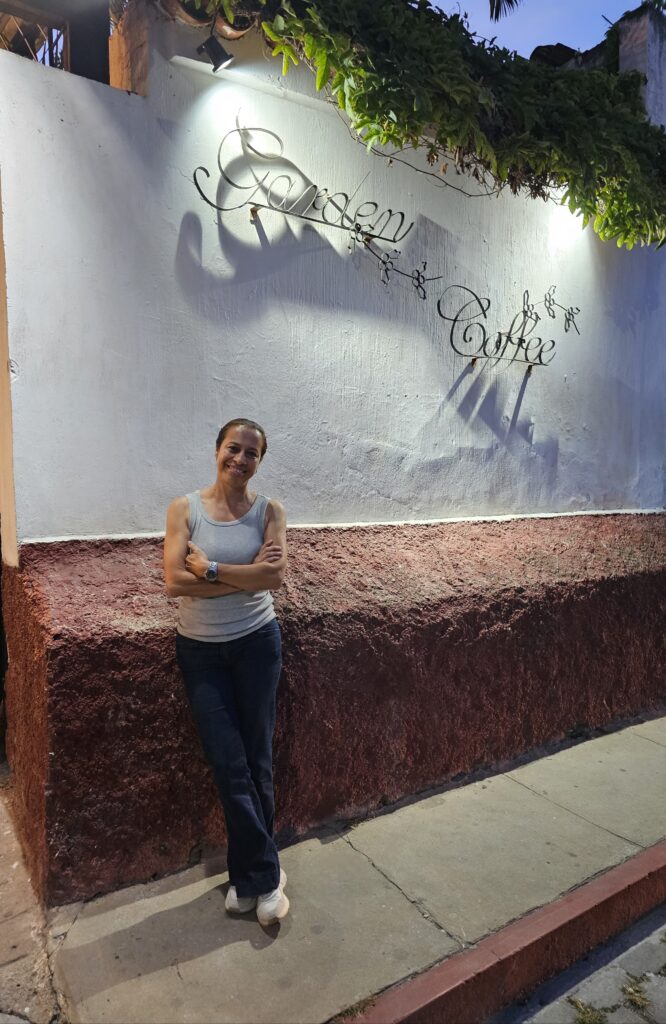
Sagastume started small. “I started by selling coffee bags, focusing on the quality of the product, and promoting it door to door, in hotels, and at homes, facing a lot of rejection,” she says. “I then decided to open a small coffee shop. I began with a small space and small machines, and now, it’s more industrial.”
Sagastume’s approach to marketing her coffee is deeply rooted in regional culture and coffee education. Her immersive cafe setting is adorned with traditional decor and local artwork, inviting customers into a garden influenced by Guatemalan folklore.
Sagastume also understands the importance of sharing coffee knowledge and uses it to bring in customers and make the shop sustainable. “By taking advantage of having the coffee shop or roastery, another way to diversify and generate income would be to create small workshops for educating local consumers,” she says. “These could include tasting sessions, as well as training workshops on how to prepare espresso-based drinks and brewing techniques.”
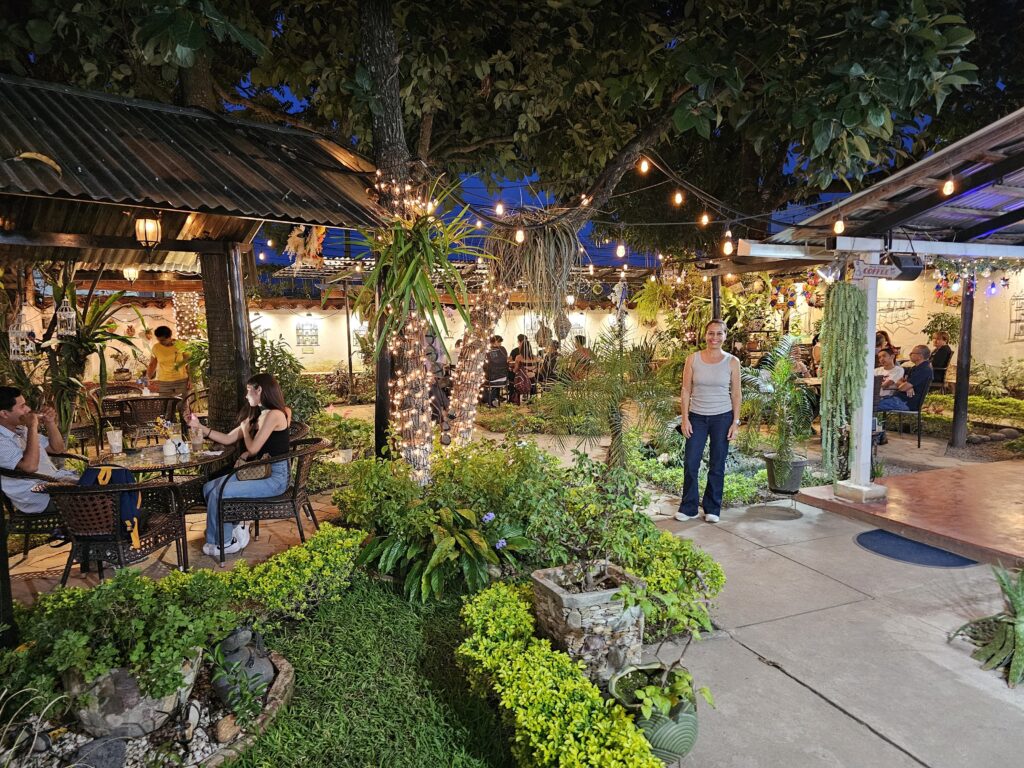
Producers like Sagastume and Pacas, who have opened their own coffee shops, are crucial advocates for local coffee. As they serve coffee sourced directly from their own farms, they offer consumers a fresh perspective on the journey of coffee from farm to cup. This strategy not only promotes the product but creates a space where people can “enjoy a good cup of coffee—a pleasant place, and above all, one where the atmosphere reflects and connects with the place where the coffee is produced,” as Sagastume puts it.
By doing so, they bridge the gap between producer and consumer, fostering a deeper, more intimate connection.
